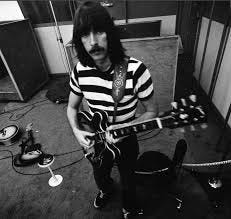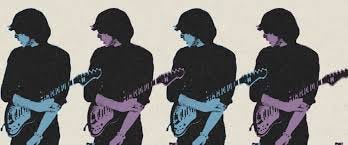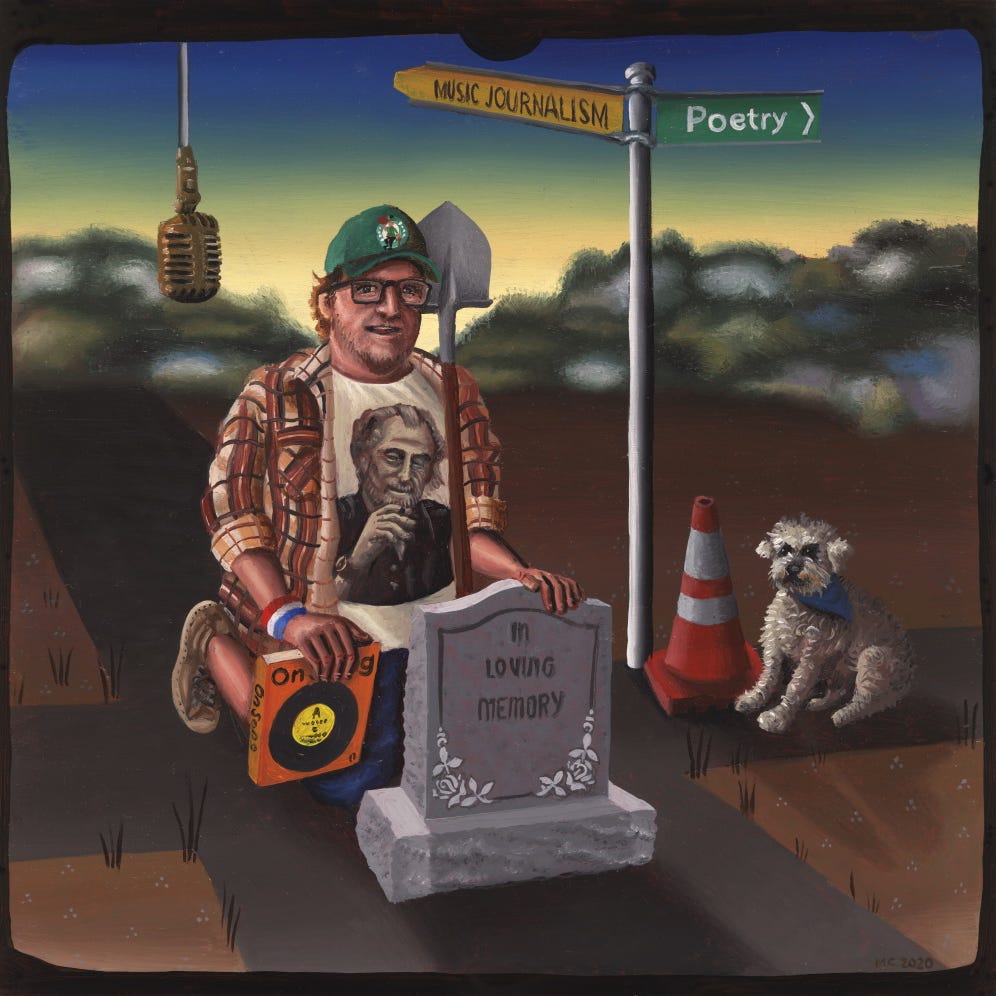The Best Guitarist in The World: # 14 – Sterling Morrison
The return of an occasional series, a spotlight on favourite guitar players; the point being there's no one GREATEST GUITARIST IN THE WORLD



I’ve been thinking a lot lately about Sterling Morrison — not just thinking about him, but listening to him too, of course. He has a very finite catalogue, and it was a very specific set of skills he offered. I’m also well aware that he’s not often found on such lists — Best Guitarist In The World, isn’t the title for him, but he’s certainly one of the most influential, by virtue of the fact that he was in one of the most influential bands. Right?
Holmes Sterling Morrison was also part of one of the great — and influential — twin guitar sounds. We sometimes struggle to know just where his jangle ends and Lou Reed’s jingle starts, or vice versa. He was capable of playing some blistering, messy, glorious solos. And he was often just sitting back chomping down on the chords, or even playing a lot of bass — an instrument he claimed to hate.
I’ve always loved his playing, and his simple philosophy. He claimed the ultimate inspiration for him was this song:
It’s almost everything about Sterling’s guitar tone, feel and technique in one song he didn’t play on; you can hear what he heard, how he heard it, and what he took from it, and then where and how he placed it. (It’s also a likely favourite of Lou Reed’s).
I love so much of Morrison’s work on all four of the VU’s studio albums, and the live recordings. On the first album he is there playing simple open chords that ring out to frame Heroin, he chomps down on barre chords for There She Goes Again, and he solos furiously in improvising glory on European Son. But the album’s best song, his favourite, and really the ‘business card’ for the sound and aesthetic of the Velvet Underground is Venus In Furs. And Sterling doesn’t even get to play guitar on it! He’s there as bass player only. He didn’t like when he’d have to take up the bass, to cover for John Cale — already stretched across viola and piano. But this didn’t stop him from being a hell of a team player, and a creative, melodic thinker on the instrument.
This is part of his sound and feel and philosophy, and as much a reason he deserves a write-up. He was there in a band of strong personalities, and was, in some ways, the glue. He was a reluctant conduit between Cale and Reed, but he was respected by both as a great band anchor. He formed his own connection with Doug Yule, later. And his love for Moe Tucker is clear in the fact he toured with her in the 80s and 90s, and appeared on her albums. (He barely recorded a lick of guitar post, VU).
Listen to that third VU album — the one just called The Velvet Underground — and you’ll hear Sterling being all knottty and twisty as he unwinds the riff to Some Kinda Love, then gospel-ly and blues-y and calm (and subtly glorious) on Pale Blue Eyes. Whether chunking down on a riff, or gently picking a motif, or ripping a solo, or simply providing clarity to Reed’s ideas and playing, Morrison is there for the song always. His parts always perfect, even when messy. Sometimes especially when messy.
He had a hand in so many of the songs — writing, producing, arranging — and wasn’t always given the credit he deserved. A frustration, hugely, and not fair, frankly. But again, a team player. There even as the band was completely falling apart. He hated the loss of Cale. He hated the walk-outs across the years.
When he left in the end, he all but turned his back on music. He enrolled in a university course, completing undergrad and post grad studies in literature, completing a PhD. He trained as a tugboat captain. And he turned up to help his friend Moe. You can hear him on a couple of songs on a Luna album. Dean Wareham is one of many to take huge influence from Sterling, and from the Velvets. And you immediately feel the sound and soul of Morrison on Luna’s Bewitched album:
Of course he was there for the official Velvet reunion in the early 1990s. And his trademark sound was instant:
But, again, mostly I think of him as one part of a guitarist, or one part of a two-pronged guitar attack. He and Lou, between them, building a perfect guitar sound. You hear it in Television. You hear it across Sonic Youth. You hear it in Yo La Tengo. You hear it with Luna. You hear it all through Flying Nun.



He was gone far too soon, too young, too early, dead in 1995. The band had its reunion, sure, but that very swiftly ended in acrimony — again. He missed the Hall of Fame induction, but was there in spirit, influencing a final original song by the remaining members:
But perhaps we can think, too, of how Sterling Morrison helped Jonathan Richman directly. And then, how, indirectly, he helped David Kilgour. If that was only his legacy it would be amazing.
Every time I listen to The Velvets, I think of all of the players equally. I don’t just think of Lou Reed. And I think of how Sterling’s stoicism, his guitar poses, his anti-heroics, influenced 40 years and counting of guitar playing that moves importantly away from the purely virtuosic.
If you haven’t already, you should watch Cam Forrester’s amazing unofficial three-part documentary from YouTube:
I’ve also made a playlist of some Sterling highlights — just a song from each of the VU albums, because you go back through all of those for all of the magic. But a chronological stroll through his guest appearances (Nico, Moe Tucker, Luna) as well as those VU single highlights. ENJOY:
The Best Guitarist In The World is a series here but it started life on the Phantom Billstickers Facebook page over a decade ago…
(a simple search on the site will unearth previous entries)







And here I was expecting Jimmy Page! No, Sterling Morrison's idiosyncratic, wonderful work has always impressed me mightily, especially in conjunction with Lou. Thanks for sharing the strange and gorgeous Some Kinda Love ("and of course you're a bore, but at night you're not charmless"; just one of the killer lines to be found here.) Thank you Simon - a perceptive piece.